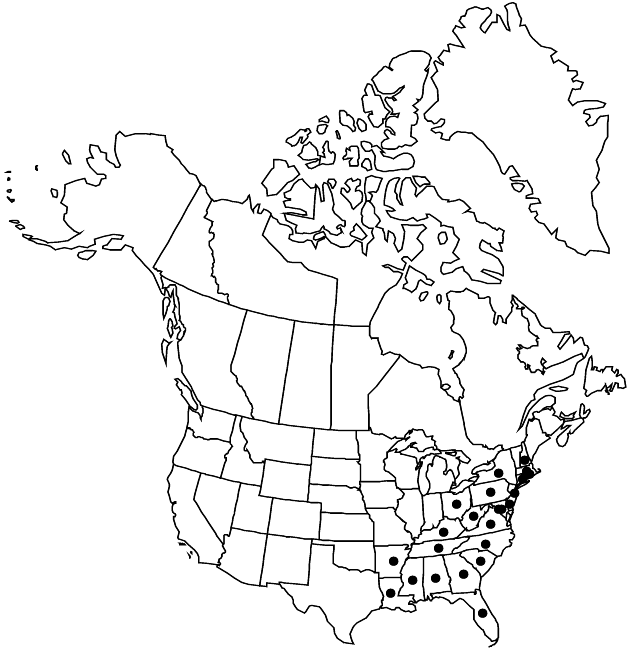Difference between revisions of "Eupatorium rotundifolium var. ovatum"
in A. P. de Candolle and A. L. P. P. de Candolle, Prodr. 5: 178. 1836.
Endemic
Basionym: Eupatorium ovatum Bigelow Fl. Boston. ed. 2, 296. 1824
Synonyms: Eupatorium pubescens Muehlenberg ex Willdenow
FNA>Volume Importer |
imported>Volume Importer |
||
| Line 6: | Line 6: | ||
|place=5: 178. 1836 | |place=5: 178. 1836 | ||
|year=1836 | |year=1836 | ||
| + | }} | ||
| + | |special_status={{Treatment/ID/Special_status | ||
| + | |code=E | ||
| + | |label=Endemic | ||
}} | }} | ||
|basionyms={{Treatment/ID/Basionym | |basionyms={{Treatment/ID/Basionym | ||
| Line 55: | Line 59: | ||
|publication title=in A. P. de Candolle and A. L. P. P. de Candolle, Prodr. | |publication title=in A. P. de Candolle and A. L. P. P. de Candolle, Prodr. | ||
|publication year=1836 | |publication year=1836 | ||
| − | |special status= | + | |special status=Endemic |
| − | |source xml=https:// | + | |source xml=https://bibilujan@bitbucket.org/aafc-mbb/fna-data-curation.git/src/bb6b7e3a7de7d3b7888a1ad48c7fd8f5c722d8d6/coarse_grained_fna_xml/V19-20-21/V21_1184.xml |
|tribe=Asteraceae tribe Eupatorieae | |tribe=Asteraceae tribe Eupatorieae | ||
|genus=Eupatorium | |genus=Eupatorium | ||
Revision as of 20:54, 27 May 2020
Leaf blades 3-nerved distal to bases, 30–70 × 30–60 mm, broadest near middles, bases broadly cuneate to cuneate, margins serrate. 2n = 20, 30.
Phenology: Flowering Jul–Aug.
Habitat: Moist, low ground, roadsides, sandy soils
Elevation: 10–200+ m
Distribution

Ala., Ark., Conn., Del., D.C., Fla., Ga., Ky., La., Md., Mass., Miss., N.H., N.J., N.Y., N.C., Ohio, Pa., R.I., S.C., Tenn., Va., W.Va.
Discussion
Variety ovatum is an apomictic polyploid that may be a derivative of Eupatorium rotundifolium and E. sessilifolium. Morphologically, it is closer to E. rotundifolium than to E. sessilifolium; the name E. pubescens has priority at species rank.
Selected References
None.
Lower Taxa
None.